Loki and the Language of Sexual Violence in the MCU
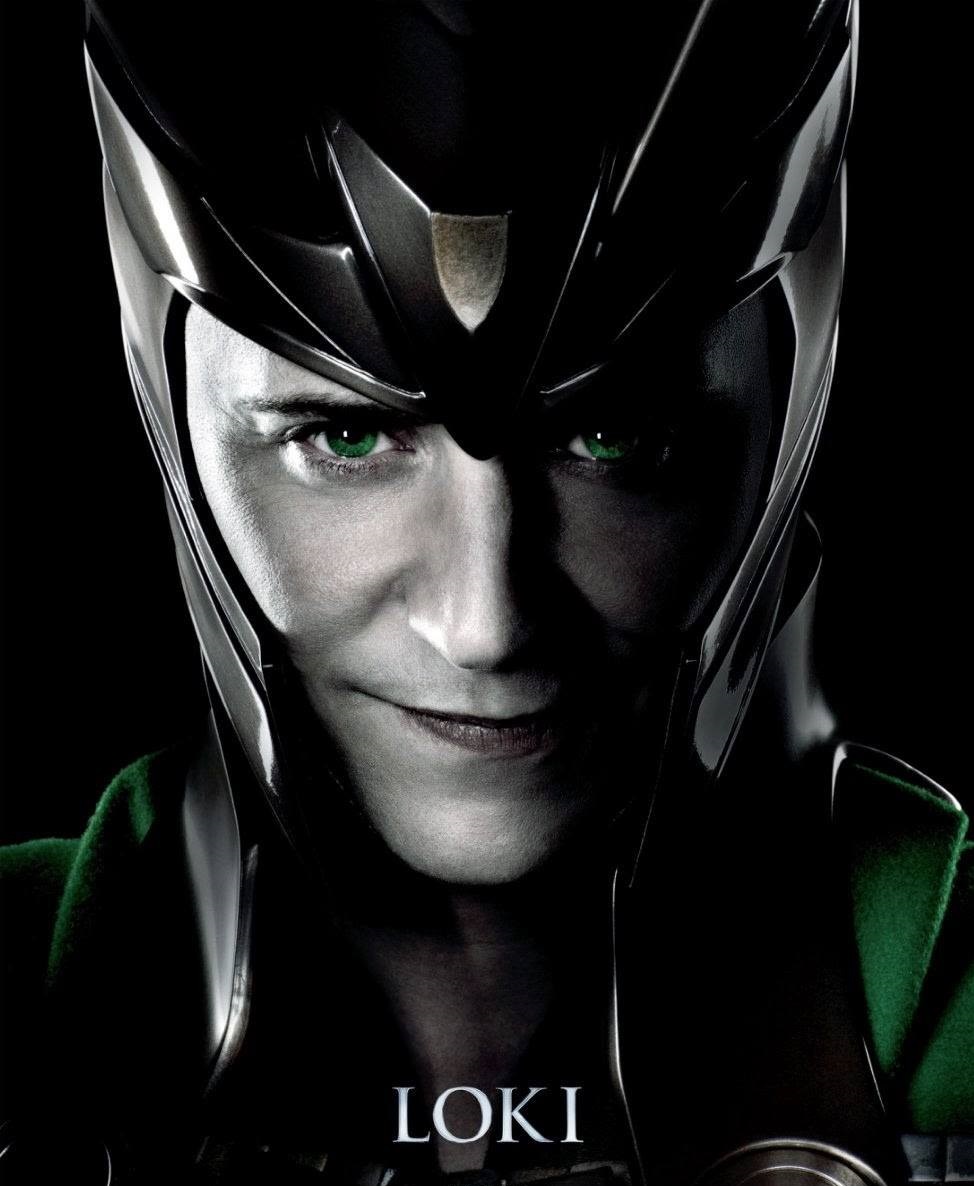
[Trigger warning: discussion of sexual violence, consent issues, and rape]
All this talk of Marvel’s Thor: The Dark World (2013) inspired me to break out my Blu-ray edition of Marvel’s Thor (2011) the other night. By all accounts, it’s my favorite film of the Marvel Cinematic Universe (MCU) since it taught me to love Thor and Marvel, which then inspired me to apply for an internship there and the rest is geeky history. So I love this movie. I love Thor. And like most in the Marvel fandom, I love Loki.
But there’s a moment in Thor that I always found troubling and I often try to forget it happens. When it does occur, I find myself incredibly uncomfortable, especially for a movie that I thoroughly enjoy as both a feminist and a geek.
Towards the end of the film, Thor (Chris Hemsworth) returns to Asgard to confront and battle his wayward brother Loki (Tom Hiddleston) and now the two brothers face each other as opponents and deeply changed men. Loki is the combative and aggressive one and Thor is the hurt one trying to find a reasonable solution. Thor doesn’t want to fight his brother; he claims he’s changed. Loki then taunts him:
“Come on, what happened to you on Earth that turned you so soft? Don’t tell me it was that woman. Oh, it was! Well, maybe when we’re finished here, I’ll pay her a visit myself!”
This prompts a battle cry from Thor and they begin fighting.
Now, I have several issues with this moment and this essay will most likely be a continuation of my exploration of Loki and the feminine but suffice to say, I always felt that this line was a threat of sexual violence.
Loki could very well just be threatening to kill Jane Foster (Natalie Portman) but the gendered way in which he worded this threat and the fact that Thor reacts so violently always gave me pause. He accuses Thor, the hyper-masculine god of thunder, of becoming “soft” because he doesn’t want to be violent.
In other words, Thor is now weak and not too far from feminine. We have evidence that this is a major faux pas on Asgard, such as Thor’s taking insult to being called a “princess” on Jotunheim and then proceeding to kill numerous Frost Giants. Loki then blames “that woman” for this change, blaming an exposure to femininity on Thor’s new apparent weakness.
Also, if he wanted to kill Jane, why didn’t he just say so? Cloaking his threat in “paying her a visit” implies something deeper and darker. To be succinct, I can’t help but suspect that Loki is threatening rape.
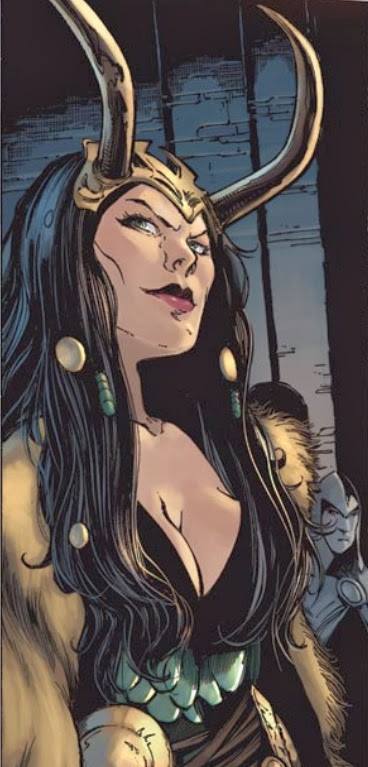 Now, I get it; it’s a PG-13 movie made by Disney Studios. There isn’t going to be overt sexual violence. And we all love the complex and complicated and terribly attractive Loki; I do, too.
Now, I get it; it’s a PG-13 movie made by Disney Studios. There isn’t going to be overt sexual violence. And we all love the complex and complicated and terribly attractive Loki; I do, too.Something does not have to be overt, however, to be triggering. I also believe that when it comes to sexual violence, there is no overreacting. And just because a character is flawed and tragic, does not excuse all of his actions, no matter how expertly played by a charming and attractive man.
So, if Loki is threatening sexual violence against a woman, does this clash against his reliance on the feminine (magic and witchcraft)? Now, we know that the Loki of the Marvel comics and Norse mythology is gender fluid. He even gave birth to several monstrous creatures in the myths and famously stole Sif’s body in the comic books (another issue of consent).
As I discussed once before, Loki’s strength lies in the feminine realm; that is, in magic which was taught to him by his mother, Frigga. In the Asgard of the MCU, we can infer that the sorcery that Loki relies on is considered lesser or Other to brute strength and a warrior’s cunning.
Why, if Loki is at home in and relies on the feminine or the Other, does he throw out this upsetting reference to sexual violence? Is it because in that moment in the film, he is now the ultra-masculine one? Thor, we know, has become more calm, understanding and less prone to violence by this point in the film. Was this line an effort to demonstrate the stark changes the two brothers went through? And if so, why are we still relying on threats of sexual violence and rape to demonstrate hyper-masculinity? That is offensive to all genders.
What’s even more troubling is that this is not the only time Loki speaks of sexual violence. The famous “mewling quim” scene in Marvel’s The Avengers (2012) has a great deal of violent sexual overtures directed at the Black Widow by Loki. A lot has been written about this scene and the worrisome sexist moments in it.
In case you didn’t know, the famous insult that Loki spat to the Black Widow and on stage this summer at San Diego Comic-Con (to applause and screams of delight) translates to “whiny c—.” Even the Oxford Dictionaries defines “quim” as a vulgar British slang for “a woman’s genitals”. Remember when I said a PG-13 Disney movie wouldn’t have a scene of overt sexual violence? Well, apparently it can’t be overt or in American English either.
So, we’ve got an overwhelmingly gendered and sexual insult thrown to a woman immediately after she is threatened with another of Loki’s implications of rape:
“I won’t touch Barton. Not until I make him kill you; slowly, intimately, in every way he knows you fear. And then he’ll wake just long enough to see his good work, and when he screams, I’ll split his skull! This is my bargain, you mewling quim!”
Again, Loki could just be threatening death but the manner in which these lines are delivered, plus the use of a slow and intimate death featuring Black Widow’s worst fears seemed to go beyond murder. Again, I found this moment upsetting because my first thought was that he was referencing rape. Whether or not he is, other viewers evidently felt the same way, which demonstrates that the connotations are there no matter what Loki actually intends.
Of course, Black Widow is tricking the trickster in this moment and uses his assumptions of her fears (and after all, isn’t rape the universal fear for women? Even some feminist scholars have argued that rape is a process of intimidation by men against women[i]) against Loki, which brings the power back to her. As always, rape is about power and Loki used implications because he thought he was the one in power in both scenarios. He was wrong.
Admittedly, it’s been a while since I’ve sat down and watched all of the films in the Marvel Cinematic Universe but I really don’t recall another male character using language that implied rape and sexual violence. There is the obnoxious soldier in Marvel’s Captain America: The First Avenger (2011) who mocks Agent Peggy Carter: “Are we gonna wrestle? Because I got a few moves I know you’ll like,” to which Agent Carter responds by knocking him down literally and figuratively.
This is sexual and super gross and offensive but it is not violent like the previous lines. Furthermore, it was used to demonstrate Agent Carter’s professionalism and toughness while illustrating the mindless sexism she had to endure.
Tony Stark makes numerous sexual references but they are almost always vaguely “ha ha I used to be a womanizing playboy but now I’m in a committed relationship with Pepper Potts so all is forgiven, am I right?” Tony is too busy making us laugh or breaking our hearts with his daddy issues to really be offensive, it seems. If I am missing any other examples, please let me know.
So why Loki? Is it just because he’s the bad guy and bad guys say bad things? Or does it have something to do with the duality he seems to struggle with: good vs. bad, Frost Giant vs. Asgardian, brother vs. enemy, masculine vs. feminine?
Most of us are already aware, from the countless Internet jokes, memes, and fanart about it, that the Loki of the Norse myths was the victim of nonconsensual sex[ii], though his son, the eight-legged horse, Sleipnir is rarely referred to as the product of a rape among the fandom. We see Odin atop Sleipnir for a brief moment in Thor on Jotunheim, though the horse is never named and it’s only by the presence of its eight legs that we even know that it is Sleipnir.
Whether or not the MCU follows the Norse myths has been a source of lighthearted joking among the fandom since 2011 but either way, Loki’s story here is also one about coercion and a lack of consent.
Does Loki use this sort of language to rebel against the feminine realm he seems to depend on? Is the feminine that unpleasant even to a being as powerful and intelligent as Loki? Or, as I’m sure plenty will argue, were these moments simply the results of Loki being not in his right mind (driven to rage and despair in Thor and under alleged mind control in The Avengers)?
Around this point, a voice in my head would argue that I was over-thinking all of this, but the very fact that Joss Whedon, writer and director of The Avengers, claims that the thing he’s most proud about the Avengers was “[g]etting ‘mewling quim’ out there to the masses” signifies that sexual violence is very real in our pop culture and very problematic in its mass acceptance.
At the end of the day, I still am a Loki fan but I can’t ignore it when a favorite character is being extremely troubling or triggering. I also stand by my belief than when it comes to sexual violence or rape, we cannot ignore or neglect its presence in our culture and our entertainment.
All photos and properties copyright Marvel Entertainment LLC.
[i] Susan Brownmiller argued this in her 1975 book Against Our Will: Men, Women, and Rape.
Author: Kerry
Help support independent journalism. Subscribe to our Patreon.
Copyright © The Geekiary
Do not copy our content in whole to other websites. If you are reading this anywhere besides TheGeekiary.com, it has been stolen.Read our

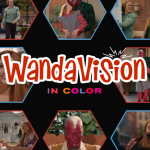
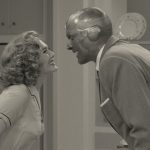



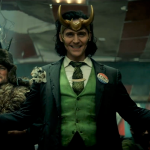
Those are some really good points. The moment in “Thor” when Loki threatened Jane was jarring, but I never really had a chance to think about it because of the fight sequence. And then in “the Avengers” when Loki threatened Natasha he was throwing such nonsensical phrases together at such a fast pace I wasn’t quite sure what the point was, but again, when he said “what you fear most” I couldn’t help but think of rape.
And quite honestly the characterization of Loki throughout the three films are inconsistent. They’re more a caricature than a fleshed out person. The only time Loki’s part ever seemed to be sincere and realistic was the first half of “Thor.” It is strange that he had that sudden shift into hegemonic masculinity near the end. It is believable that he would have internalized patriarchal and misogynistic views despite his feminine characteristics, but that complete dichotomist change was bizarre.
And I’m horrified over the “quim” part. I had no idea.
Thank you so much for reading! You make an interesting point regarding Loki’s inconsistent characterization since so many people argue that he is one of the most intriguing/complex characters in the MCU. He most likely did internalize the patriarchal views of Asgard but I had also believed that due to his duality as a character, he would’ve rebelled against it rather than employ it. And yet, he uses hypermasculine sexually violent language/images whereas Thor, the poster-child of super masculine power, never does and becomes the more understanding and patient of the two men.
And the “quim” thing is stunning and I’ve heard from several British fans that they were shocked at that line in the film.
Depending on whether you consider any of the Norse mythology as canon in the MCU, it could be that Loki having been a victim of non-consensual sex himself, has internalized sexual threats as a given, i.e., “it was done to me” so therefore it’s a reasonable threat. I think also that Asgard is very much a warrior culture and historically rape has always been a part of the victor’s spoils. I can imagine that both Loki and Thor were raised to see that as normal and that it’s Thor who has been changed by his experience on earth and with Jane, while Loki at the end of Thor and in Avengers is just being a more extreme version of the norm of Asgard.
Very interesting points regarding the Norse mythology as canon in the MCU. Of course, we’ll never know and the comic books never followed the myths too closely. What’s interesting is that if we look at the Vikings as a culture who worshiped these gods, it’s important to note that the Vikings had pretty progressive rape laws: http://www.cracked.com/article_20474_5-shockingly-progressive-ideas-from-primitive-cultures.html Rape and attempted rape was punishable by exile or death, which would mean that the language Loki uses would’ve been viewed as offensive and dangerous even to his own people.
First off, THIS: “Around this point, a voice in my head would argue that I was over-thinking all of this….” BINGO. You got it. You ARE waaaaaaaay overthinking this.
All of this “trigger” B.S. is such a load….
OMG. ROFLMAO. Good GOD. The fact that there’s a trigger warning at the top of this article is laughable in and of itself, in addition to any of the dialogue in the movie being equally “traumatizing”—PLEASE. HOW sensitive are you over a geek movie involving fictional characters from fictional realms in a fantasy storyline? You are REALLY stretching it with that line about Loki paying Jane a visit being a “trigger”—SHEESH. Give it a rest. (I personally found the line ambiguously titilating. Interpret that/psychoanalyze me any way you want….) You–and whomever else is upset at that line, or any of the other ones in The Avengers, be it “mewling quim” or whatever– really need to just stay under your rock and only watch G-rated Disney fodder designed to entertain 4 year-olds. You feminazis are offended by EVERYTHING and read WAY too much into nothing for the most part. Either get over yourselves or stop watching any kind of movie that isn’t about fluffy bunnies, horsies or Smurfs. (Oh—wait. I’m sure there are some sort of Satanic, woman-hating elements to the Smurfs too, since they only have one female Smurf and you’d probably take that to infer that they’re all gang-banging her….)
I consider myself a feminist and have been one for longer than most of you have probably been alive, but I’m not offended by every single comment in every movie/t.v. show/comment in my household/office/etc. ever uttered. All of the fake “traumatization” over every over-scrutinized line/action is ludicrous. Give me a freakin’ break—this type of “feminist” gives the rest of us a bad name with overly sensitive hangups about the most inane things. It’s the reason that people laugh at the term “feminist” and say it like it’s a bad thing. “Feminazi” is a more fitting term for your ilk than “feminist”. I see people constantly using that word as basically an insult, because of the fact that half of the population takes it to mean “overly sensitive females who are offended by virtually everything”–which, judging by this article, doesn’t do anything to dispel that idea.
The fact that such lame things as these are “triggers” for you is a joke. IT’S JUST A MOVIE. And BTW, all of these Marvel movies have a poo-load of violence in them of ALL kinds. Why is the violence against women so much of a bigger deal than all of the OTHER violence in Marvel movies? Does Thor & Loki beating the caca out of one another “trigger” any other sort of traumas for you as well? If not, why not? (I mean, maybe they should just hit each other with those giant pool toy noodles so they don’t actually injure one another. And nobody should ever get killed in a Marvel movie either, right? Because that’s violence as well—hey, sexual, anti-woman or not, violence is violence, right? What about trying to destroy Jotenheim and everything in it? Isn’t that like, total genocide? Should that be considered a “trigger” as well? Or is that okay because they’re Frost Giants?) Especially when these are geek science fiction movies that you’re all upset over? In other words, these are FICTIONAL CHARACTERS. It’s laughable how much of your time you people invest in them.( BTW, the movie’s rated PG-13, not G–so after this, maybe stay away from anything over the “G” rating, eh? Then again, even some of Disney’s movies have offensive sexual innuendos that may be offensive, so you’re kinda’ limited in what you can/can’t watch in order to avoid “triggers”…)
The things you’re “offended” by are ridiculous. Stay home and watch Sesame Street–unless there are implications in that which might offend you as well. You are WAY over-analyzing fictional worlds and characters. Get over it or stop watching EVERYTHING. Sincerely. I’m not even being facetious. If you’re THAT sensitive about these movies, I can’t imagine how you get from one day to the next without being traumatized by some innocuous passing remark from someone—ANYONE—that you have to interpret as an anti-woman issue. Better go back home, throw out your computer (because you never know WHEN some offensive thing you see or read on the internet will jump out and “trigger” some sort of possibly psyche-damaging reaction…) and especially your t.v.’s (since virtually EVERY show & movie on it has some sort of sexual innuendo that I’m sure equally “triggers” issues for you.) and sit under that rock.
P.S. I kinda’ LOVE Loki’s “hypermasculine sexually violent language/images”–because it’s hot. Oh–and because HE’S JUST A FANTASY CHARACTER WHO DOESN’T REALLY EXIST. (Figured I should clue everyone in on that, because judging by the article, it’s not all that apparent that the whole room realizes that…)
Conclusion about this article: OVERREACTING.
While disagreement is fine, name calling and flat out rudeness is against our policies. See here: https://thegeekiary.com/policies/
Your use of the term femnazi, a term coined by a misogynist (Rush Limbaugh), and your terrible attempts at getting around our profanity filters prove that you didn’t come here to have a constructive discussion about the topic at hand, but rather just resort to name calling and attacks. “Famnazi” also falls under sexist language and is not allowed on our website.
Furthermore it seems that you don’t understand the purpose of this website. We are media critics. We analyze and critique the media that we enjoy consuming. Just because we enjoy something does not mean that we can’t deconstruct it and point out its flaws. This article was read and approved by the biggest Loki girl on our staff. She loves Loki dearly, but approved an article critiquing him and the writing of him because that is our job here. If we were to sit back and let the media that we enjoy get away with offensive material we would not be doing what this website set out to do. That’s not to say every article on this website is filled with criticism, but we call out things when they need to be called out.
Despite this comment violating our policies numerous time it will remain intact for the time being so that you and others can become familiar with our policies, but any further comments that violate our policies will be deleted or edited at our administrators and editors discretion. If you cannot participate in civil discourse on these topics you are not welcome on this website. Be civil and stop with the name calling and sexist language. If you cannot abide by these guidelines please go elsewhere.
The assumption that seems to underlie analyses like this one, as well as the outrage about the supposedly most troubling scene in Game of Thrones, in which Jaime has apparently nonconsensual sex with Cersei, is that rape is somehow much worse – “deeper and darker,” in the words of this post – than murder. Rape is incredibly serious, but does it really out-terrible the taking of another human life, which analyses like this one seem to imply is a relatively mundane, screen-appropriate, occurrence compared with rape? Implications of rape might be triggering. The reason implications of murder aren’t? The victims are dead.